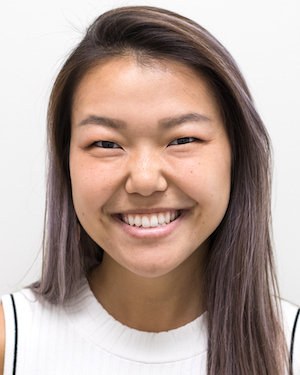My First Level 2 Fieldwork (#TBT?)

November 7, 2019
by Kaho
I know it’s November and summer feels like ages ago, but with wish-lists for the Summer 2020 level 2 fieldwork about to open up to 1st and 2nd year students, I wanted to reflect and share with you about my fieldwork experience from last summer.
For 12 weeks, I was in an inpatient acute care setting in a hospital in San Diego. As you’d imagine, it was very fast paced, challenging, exciting, etc. and I. Loved. It. Every day looked different and I was constantly learning new things. My clinical instructor (CI) has been an OT for tens of years and working at that specific hospital for over 5 years, but she mentioned that she still learns something new every day. Because the hospital didn’t have a large OT team, the OTs didn’t have an assigned area or floor. The patients in the entire hospital were distributed among the OTs randomly and equally, so I got to see everything from a person with cancer to a patient in neurology to a person with a new hip or a new knee. I was all over the floors, including the Intensive Care Unit (ICU). It was definitely overwhelming at first with so many things to keep in mind and be aware of, and I was nervous to touch anything because it is a setting where careless mistakes could be unforgiving. Also, my level 1 fieldwork was in hand therapy, so this was my first time performing transfers on real patients. However, my CI was amazing at gradually increasing my responsibility and easing me into the bustling hospital halls. She talked me through every treatment session and constantly provided me feedback on my performance. Despite my doubts, I was independently evaluating, treating, and documenting patients by the end of the summer.
My days started at 7:00am and ended at 3:30pm. The first hour of my day consisted of looking up patients’ medical history, condition, precautions, and anything else that was relevant. I was usually up on the floors by 8:00am. I saw about 6-9 patients each day with my CI, depending on how many of them were evaluations since those take longer than regular treatment sessions. In the inpatient acute care setting, your schedule revolves around the patients’ schedules, so documentation occurred during gaps when none of my patients were available or at the end of the day.
One of my favorite things about working in the hospital was that there were many opportunities for collaboration across health care professions. I got to talk to and sometimes treat with physical therapists (PTs), speech language pathologists (SLPs), nurses, and even medical doctors (MDs). We would all bounce ideas off of each other to come up with a holistic treatment plan for each unique patient. With collaboration came opportunities for advocacy, as well. I can’t tell you how many times other health professionals and patients referred to me as PT during my fieldwork experience. Patients would say to me, “What, I just had PT. Why are you back?” or “Why are you taking me to the bathroom? I thought you were going to take me walking down the hallways.” Notes from the nurses or MDs would state things like, “Patient walked to bathroom with PT today.” It was frustrating, but it was a great opportunity for me to practice promoting OT and sharing my elevator speech about what OT is and why we’re great. 😊
Another exciting aspect of having fieldwork in acute care was watching surgeries. I got to watch four surgeries over the summer: a total hip replacement, a total knee replacement, spine surgery, and a deep brain stimulation. It was an incredible learning experience and it deepened my understanding of what surgical patients go through and how much pain they may be experiencing afterwards. It made seeing the patients’ joys of taking their first shower after surgery or being able to get to the edge of their bed and sit without support that much more meaningful.
Whether this is your first level 2 fieldwork or your second, consider the inpatient acute care setting at any hospital if all or any of this sounds intriguing to you. I had a very positive experience and I highly recommend it!
⋯
Next by tag Fieldwork ⟩
⋯
1. .(JavaScript must be enabled to view this email address) | November 10, 2019
Thank you for sharing.
I’m going to start volunteering in inpatient OT and I’m looking forward to see what you saw to get a feel for what inpatient OT rehab is like.
When do you get into your next fieldwork assignment and discover where you will go?
All the best to you!





